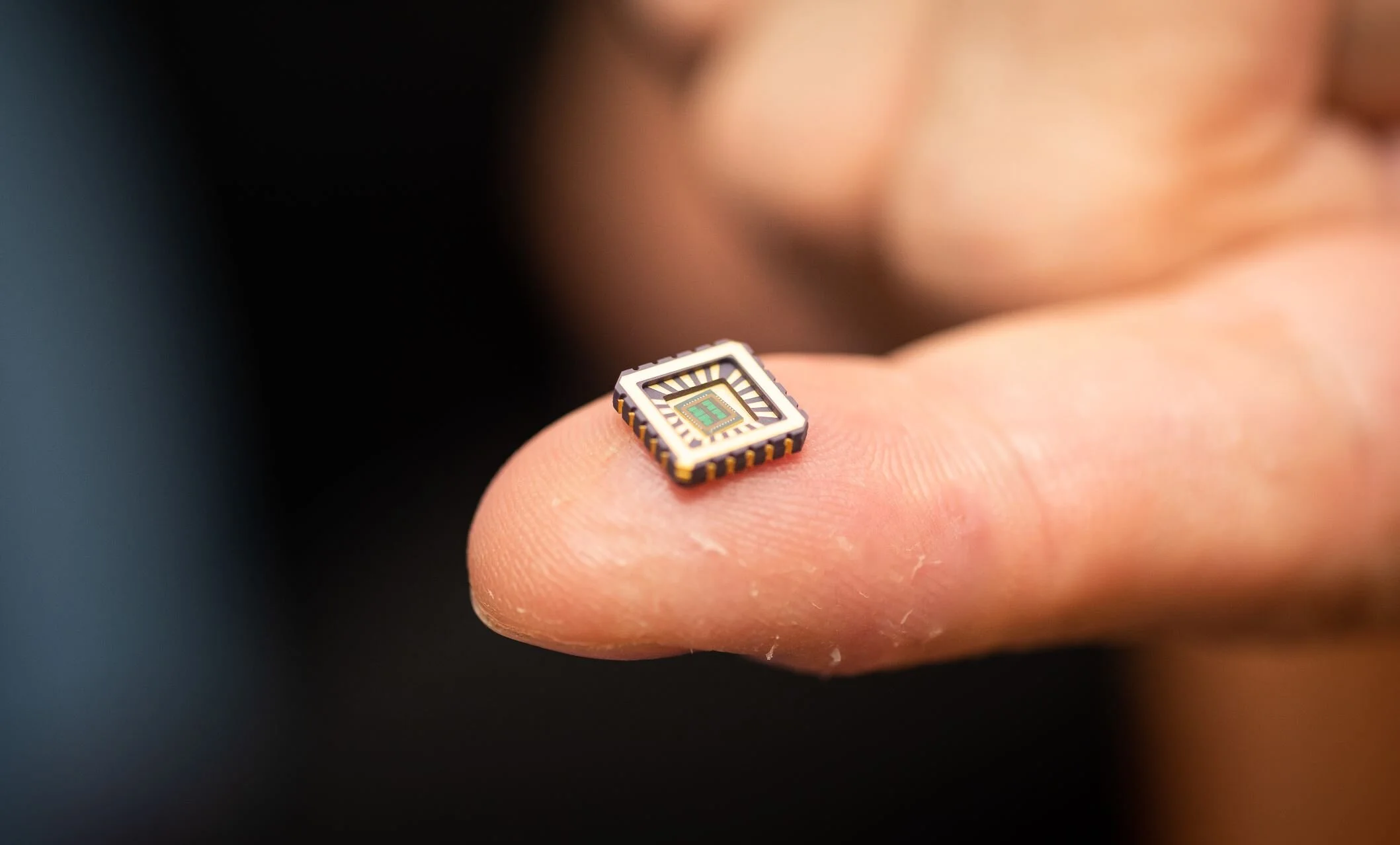Creating synthetic neurons that function like real ones has been a sort of holy grail in the field of medicine for decades. Synthetic neurons could be vital in curing diseases such as heart failure and Alzheimer's disease.
Scientists developed techniques to essentially transfer the behavior of biological neurons into a piece of silicon. - Here’s an artificial neuron in a protective shell - Image Credit: University of Bath
Curing chronic diseases has proven to be a challenging task. However, scientists aren't planning on giving up any time soon. In their latest effort, they succeeded in creating synthetic neurons on silicon chips. They act the same as real biological neurons and only need an extremely small fraction of the power that a typical micro-processor would need, which makes them usable in all kinds of medical implants.
The researchers, originating from several universities, posted their findings and description of the synthetic neurons in the science journal Nature Communications.
Professor Alain Nogaret, one of the researchers, explains that the research team developed techniques to basically transfer the behavior of biological neurons into a piece of silicon. Neurons are an essential part of the brain and the central nervous system. Some diseases are induced by these neurons decaying, losing functionality, or dying altogether.
Biological neurons in human hippocampal tissue - Image Credit: MethoxyRoxy via Wikimedia Comons
For example: in the case of heart failure, neurons in the base of the brain do not respond appropriately to feedback from the nervous system. Consequently, they do not send the proper signals to the heart, which, as a result, does not pump as hard as it actually should.
Creating synthetic neurons that function like real ones has been a sort of holy grail in the field of medicine for decades. Neurons do not regenerate, so if you lose any, you will not be able to replace them naturally. One can imagine that being able to restore previously unrestorable vital functions with artificial neurons is an incredible breakthrough.
Not surprisingly, developing artificial neurons has been an enormous challenge because of the complexity of biology, as well as the fact that neuronal responses are tough to predict. The scientists succeeded in designing equations that describe how neurons react to electrical stimuli from other nerves.
One of the challenges was to deal with the non-linear nature of neuron responses. If, for example, a specific signal is twice as strong as previous signals, it doesn't necessarily evoke a reaction that is twice as big. Professor Nogaret stated that neurons have been like black boxes up until now. Scientists have finally been able to open that metaphorical black bock and peer inside.
On the left: professor Alain Nogaret - On the right: research Associate Kamal Abu Hassan in their laboratory at the University of Bath.
The artificial neurons only need a tiny amount of power, making them ideal for bio-electronic implants that treat chronic diseases. As an example, he referred to the development of so-called smart pacemakers that, in addition to simulating the heart to pump at a steady rate, use artificial neurons to respond in real-time to demands placed on the heart, akin to what happens in a healthy heart. Another application of artificial neurons could be in the treatment of chronic diseases like Alzheimer's disease as well as other neuronal degenerative diseases.
All things considered, the results of this research might lead to many great things in the world of medicine and health care. If anything, it yet again shows that we as a society should ramp up our investments in science and scientific research. Like always, we will keep an eye out for further developments on this topic.
Sources and further reading: Optimal solid state neurons / University of Bath press release
If you enjoy our selection of content please consider following Universal-Sci on social media:












